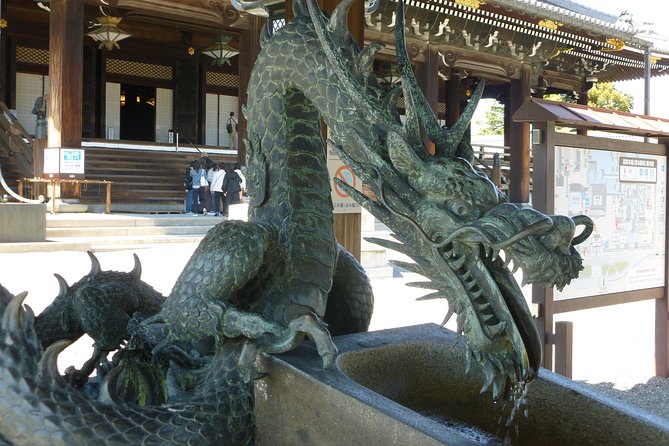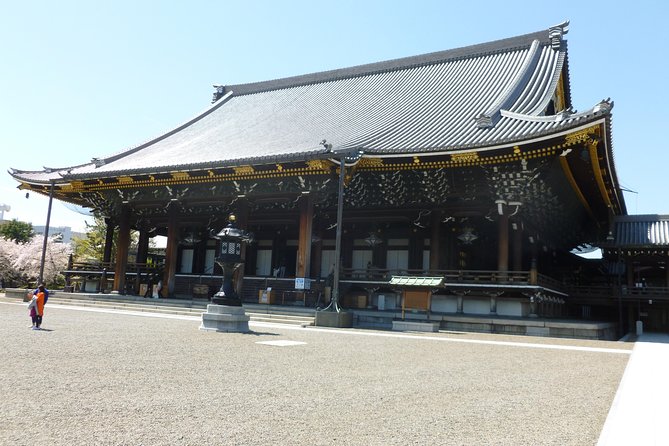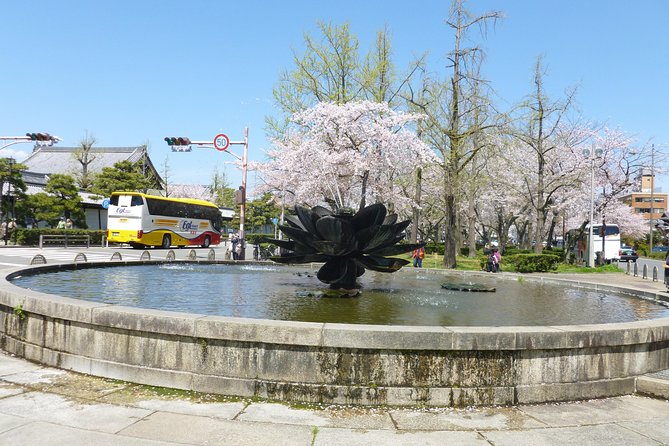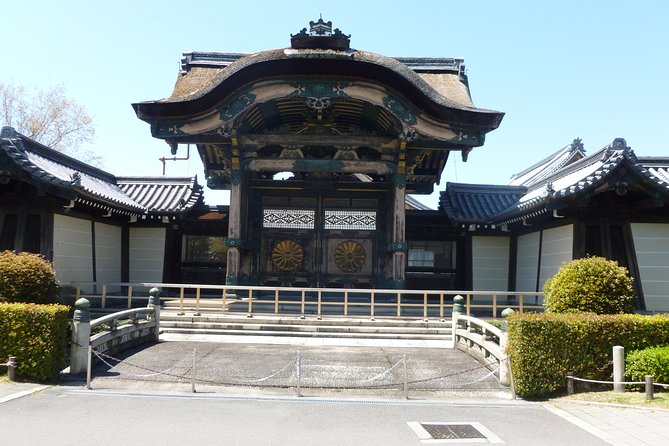Is it possible to truly embody the teachings of Buddhism in one’s everyday life?
As individuals navigate the complexities of modern existence, the concept of ‘Living Buddhism’ offers a path towards inner peace and personal growth.
By exploring the principles of mindfulness, compassion, and ethical living, one can begin to unlock the transformative potential of this ancient spiritual tradition.
But how does one go about applying these profound insights in practical terms?
The journey towards understanding ‘Living Buddhism’ holds the key to a deeper connection to oneself and the world at large.
Key Points

- Practicing mindfulness and compassion daily fosters a deeper connection to oneself and others.
- Engaging in meditation cultivates inner peace and self-awareness, essential for living a fulfilling life.
- Applying the principles of impermanence and interconnectedness guides one towards understanding life’s transient nature.
- Embodying Buddhist teachings through rituals and ethical living leads to a harmonious and spiritually enriched existence.
It's also worth checking out some other tours and experiences nearby.
History of Buddhism

How did the roots of Buddhism trace back to its origin in ancient India?
The origins of Buddhism can be traced back to the teachings of Siddhartha Gautama, known as the Buddha, in the 6th century BCE.
Buddhist philosophy emphasizes the importance of self-awareness, mindfulness, and the pursuit of enlightenment through meditation and moral living.
The core teachings of Buddhism revolve around the Four Noble Truths – the truth of suffering, the truth of the cause of suffering, the truth of the end of suffering, and the truth of the path that leads to the end of suffering.
These foundational principles laid the groundwork for the development of one of the world’s major religions, influencing millions of followers and shaping diverse cultures across the globe.
Core Beliefs and Teachings
Exploring the core beliefs and teachings of Buddhism reveals profound insights into its philosophical foundations and spiritual practices. At the heart of Buddhist philosophy lies the Four Noble Truths, which address the nature of suffering and the path to its cessation. Central to these teachings is the concept of impermanence and the interconnectedness of all beings.
Meditation techniques play a vital role in actualizing these beliefs, with practices like mindfulness meditation and loving-kindness meditation aiding in cultivating awareness and compassion. By focusing on the present moment through meditation, you can gain a deeper understanding of themselves and the world around them.
These core beliefs and meditation practices form the essence of Buddhist teachings, guiding practitioners towards enlightenment and inner peace.
Practices and Rituals

Moving from the core beliefs and teachings, the practices and rituals of Buddhism offer tangible ways for practitioners to embody their spiritual values and deepen their connection to the tradition. In Buddhism, adherents engage in various practices and rituals that help them on their spiritual journey.
-
Meditation Techniques: Meditation holds a central place in Buddhist practices, with various techniques aimed at cultivating mindfulness and insight.
-
Buddhist Art: Art plays a significant role in Buddhism, serving as a form of meditation, expression, and devotion.
-
Monastic Life: Monks and nuns lead a life dedicated to the teachings of the Buddha, serving as examples of living in accordance with Buddhist principles.
Spread of Buddhism
Widely propagated across Asia and eventually reaching other continents, Buddhism spread through a combination of trade routes, missionary activities, and cultural exchanges.
The dissemination of Buddhist teachings was accompanied by the transmission of artistic expressions, leading to the development of distinctive Buddhist art forms in different regions.
As Buddhism traveled to new lands, various meditation techniques were shared and adapted, contributing to the evolution of contemplative practices.
The integration of these methods into local traditions facilitated the assimilation of Buddhism into diverse cultures.
The exquisite statues, paintings, and sculptures created under the influence of Buddhist beliefs not only served as religious symbols but also enriched the artistic heritage of societies that embraced the faith.
Modern Influence

Influencing diverse facets of society, Buddhism in modern times continues to shape cultural norms and personal beliefs worldwide.
-
Western adaptation: Buddhism has seen significant adaptation in Western countries, blending traditional teachings with modern practices to cater to a broader audience.
-
Cultural integration: The integration of Buddhist principles into various cultural contexts has led to a richer tapestry of beliefs and practices, fostering understanding and harmony among diverse communities.
-
Contemporary challenges: Buddhism faces challenges in the modern era, including issues related to commercialization, secularization, and maintaining authenticity amidst rapid social changes. Despite these challenges, the teachings of Buddhism still resonate globally, impacting individuals and societies in profound ways.
Buddhism in Daily Life

Embracing Buddhist principles in everyday routines enhances mindfulness and cultivates inner peace amidst life’s challenges. Daily mindfulness practices contribute to spiritual growth and a deeper connection to oneself and the world. Incorporating simple yet profound habits can significantly impact one’s well-being.
| Benefits of Mindful Living | Examples | Impact |
|---|---|---|
| Reduced stress levels | Meditation | Calmer disposition |
| Increased self-awareness | Mindful eating | Healthier choices |
| Improved emotional regulation | Deep breathing exercises | Enhanced resilience |
Here's a few more nearby tours and experiences we think you'll like.
Common questions

What Are Some Common Misconceptions About Buddhism?
Many hold common misunderstandings about Buddhism. They often confuse meditation as the sole Buddhist practice, overlooking the diverse rituals and teachings. Understanding the depth and variety of Buddhist practices can enrich one’s perception of this ancient tradition.
How Does Buddhism View the Concept of Karma and Reincarnation?
Buddhism views the concept of karma as a belief where actions influence future outcomes, emphasizing cause and effect. Reincarnation practices involve the cycle of rebirth based on karma, guiding spiritual evolution. These principles shape Buddhist understanding of existence.
Are There Any Specific Dietary Restrictions or Guidelines in Buddhism?
Buddhism emphasizes moderation and mindfulness in dietary habits, reflecting cultural practices of simplicity and compassion. Vegetarianism is common among practitioners, with some following specific guidelines like avoiding meat, alcohol, and certain pungent vegetables to cultivate spiritual awareness.
How Do Buddhists View the Role of Women in the Religion?
Buddhists embrace women’s empowerment with a focus on gender equality. They value women’s roles in the religion, promoting equal opportunities for spiritual growth. Their teachings emphasize compassion, wisdom, and respect for all beings.
What Is the Significance of Meditation in Buddhism and How Is It Practiced?
Meditation in Buddhism is significant for cultivating mindfulness through practices like mindful breathing and loving-kindness. It helps individuals develop inner peace, self-awareness, and compassion. Buddhists often meditate to deepen their understanding of the mind and reality.
Not for you? Here's more of our most recent tour reviews happening neaby
- City Escape: Arashiyama Park Private Day Trip
- Japan Kyoto Online Tours Virtual Experience
- Kyoto 8hr Private Tour With Government-Licensed Guide
- 3 Day Tokyo to Kyoto Tour (Hotels, Transport and Guide Included)!
- KYOTO-OSAKA Day Tour by Private Car and Driver (Max 4 Pax)
- Early Bird E-Biking Through East Kyoto
- Tea Ceremony in Kyoto SHIUN an
- All Inclusive 1 Day Private Kyoto Tour by a Local Born in Kyoto
- Full-Day Private Guided Tour in Kyoto, Arashiyama
- Private Full-Day Walking Tour of Kyoto
- Kyoto Sweets & Desserts Tour With a Local Foodie: Private & Custom
- 2-Hour Oriental Body and Head Massage in Kyoto Japan
- Osaka Kansai Airport (KIX) to Kyoto – Round-Trip Private Transfer
- Nara Day Trip From Kyoto With a Local: Private & Personalized
- Private Photo Session With a Local Photographer in Kyoto
Sum Up

To sum it up, ‘Living Buddhism’ offers a timeless path to mindfulness, compassion, and inner peace in today’s fast-paced world. By embracing the core beliefs, teachings, and practices of Buddhism, you can cultivate personal growth, resilience, and a deeper connection to the world around them.
Through meditation, ethical living, and a commitment to compassion, Buddhism provides a roadmap for navigating life’s complexities with grace and wisdom. Embracing the transformative potential of Buddhism can lead to a more fulfilling and harmonious existence.






